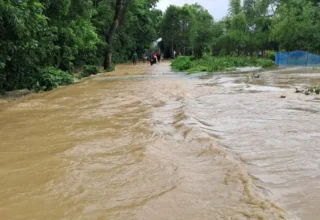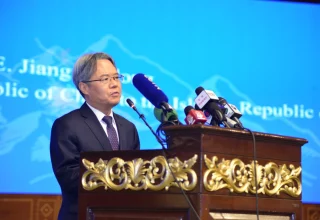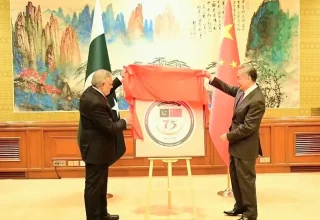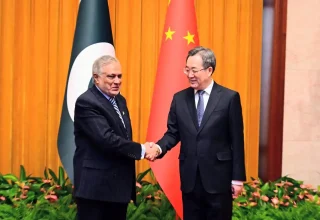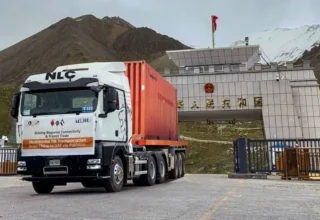
ISLAMABAD, Jan. 8 (Internews): In a groundbreaking development, the first shipment of goods from China to the United Arab Emirates (UAE) via Pakistan was successfully initiated on December 29, 2024, it was learnt on Wednesday.
This milestone marks a significant step forward for the China-Pakistan Economic Corridor (CPEC) and regional economic connectivity.
The National Logistics Cell (NLC) facilitated this landmark journey under the international road transport system, TIR. A truck carrying electronic equipment departed from Kashgar, Xinjiang, China, bound for Jebel Ali Port in Dubai. The route leveraged Pakistan’s land-sea corridor, providing a faster and more efficient alternative to traditional shipping routes.
The journey began with the truck crossing the Khunjerab Pass, the highest paved international border crossing at over 4,600 meters above sea level. It made its first stop at the NLC Dry Port in Sost, Gilgit-Baltistan, where a ceremony celebrated the occasion.
From there, the cargo was transported to Karachi, covering the distance in just eight days. The shipment will then be transferred to a vessel for a two-day sea journey to the UAE, completing the entire transit in only 10 days a significant reduction from the usual 30 days.
Previously, the Khunjerab Pass facilitated bilateral trade between China and Pakistan, but this new initiative expands its role, transforming it into a vital trade gateway between China, the Gulf, and potentially beyond. This development underscores the growing strategic importance of Pakistan as a transit hub, enabling greater economic integration across Asia and the Middle East.
Experts view this initiative as a stepping stone toward including more regional countries in the CPEC framework. By integrating Central Asian Republics (CARs) into this corridor, Pakistan could become a pivotal player in fostering regional economic connectivity.
The shorter and more efficient route offers significant advantages for the business community. Reduced transit times not only lower logistics costs but also enhance supply chain efficiency, making the corridor an attractive option for international trade.
As Pakistan positions itself as a central transit hub, this achievement highlights the transformative potential of CPEC and its role in reshaping regional trade dynamics.



















